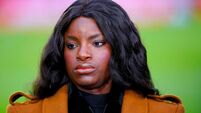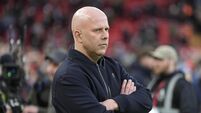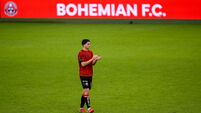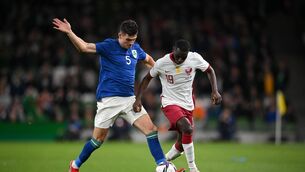A helping hand
Ireland may never have played better in a qualifying campaign but how many people even know that, because Stapleton’s goal was disallowed?
“I feel this terrible frustration,” he says in that likeable, effusive, candid way of his, “because the likes of (Liam) Brady, (Frank) Stapleton and (David) O’Leary deserved to play at a World Cup, in their prime. That’s what I feel bad about and sometimes wish if only, if only, if only.”














